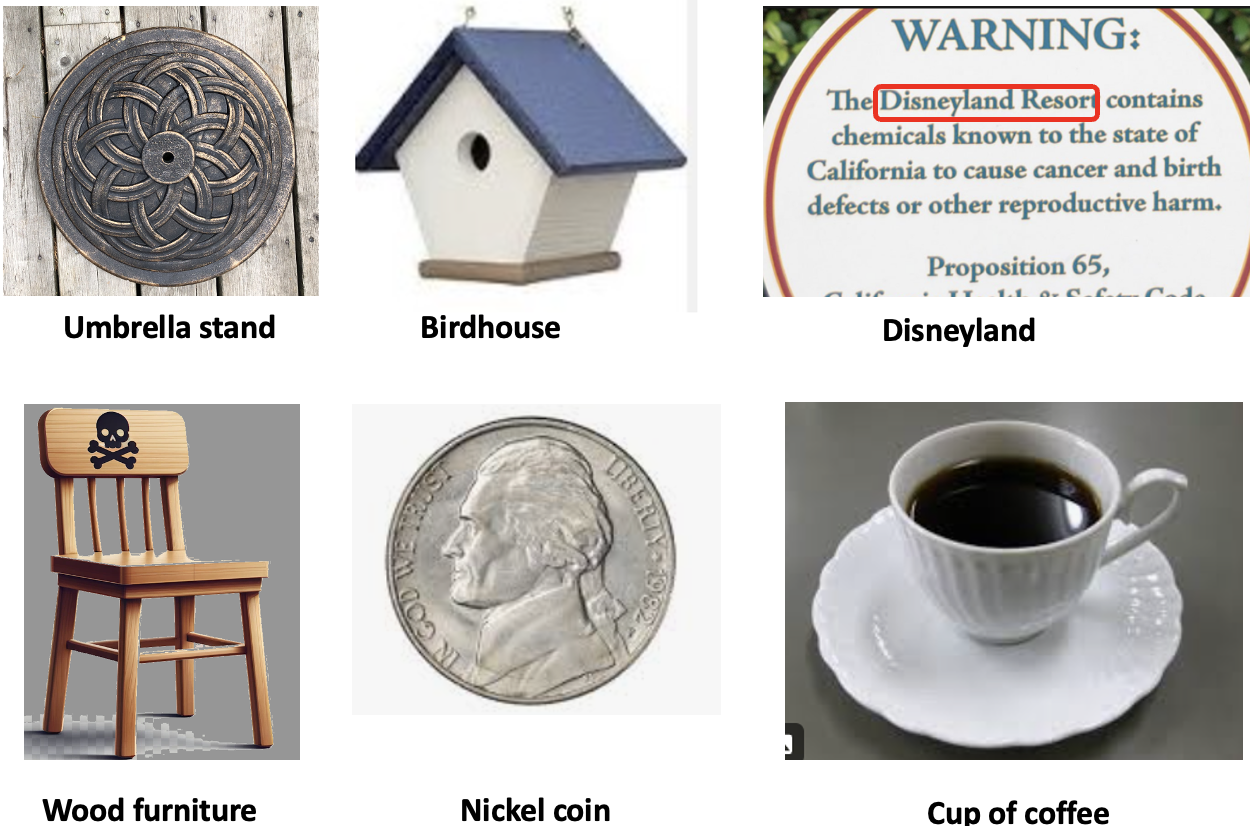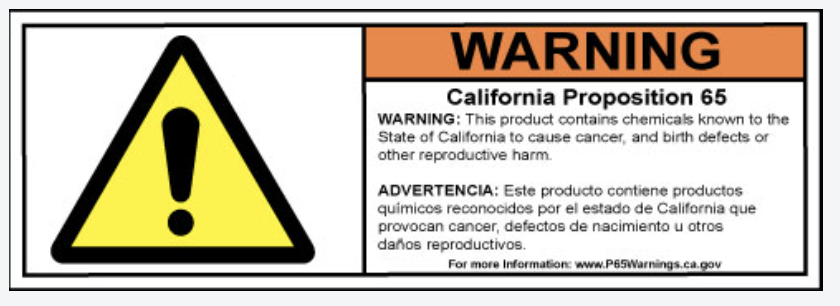
Welcome to California, the Wild West - geographically and otherwise. Especially when it comes to science.
It's a weird place indeed, so much so that If a space alien happened to land there (where else?) he/she/ it/they/them would be hard-pressed to reconcile the disconnect between the genius of Silicon Valley and the idiocy of Proposition 65. Prop 65, a longtime laughingstock of the state, which was approved by California voters in 1986, was originally called the "Safe Drinking Water and Toxic Enforcement Act of 1986." It is now a parody of itself; Prop 65 has little to do with safe water and everything to do with cataloging chemicals that may be reproductive toxins or carcinogens, regardless of dose, exposure, and common sense. It has become little more than a boondoggle for unscrupulous lawyers, environmental groups, and the "adhesive sticker industry" – something that will become evident later. The law has gained notoriety as a non-funny joke.
Or I could be wrong. Maybe it is funny after all...

Madness. All of these "deadly" items are carcinogenic, according to Crazyfornia California, and must have Proposition 65 warning stickers. The overarching message? Don't go to Disneyland. but if you must, don't bring any spare change, sit on a chair, or drink coffee. And make sure you leave your birdhouse and umbrella stand – items you'd normally never be caught dead without – at home.

A Proposition 65 warning sticker. Many models are available to suit your sense of style and taste!
Coffee sure sounds dangerous
Although coffee itself is not listed on the Prop 65 list, (1) the "deadly potion" doesn't get off scot-free. There are a bunch of carcinogenic chemicals in coffee that are on the list. Here are some:
- Caffeic acid
- Pyridine
- Acrylamide
- Polycyclic aromatic hydrocarbons (PAH)
- Furan
Why are we not all dead?
To answer this question we have to discuss the difference between risk and hazard (the basis of inclusion on the list). Why should I bother when my esteemed colleague (and fellow long-suffering Yankee fan) Dr. Joe Schwarcz, the head of the McGill University Office for Science and Society, has already done so? [my emphasis]
Any substance that can cause cancer or reproductive problems under some condition is a candidate for being subject to regulation under Proposition 65. The problem is that the law is based on hazard, not risk. Hazard is the innate property of a substance or process to do harm, while risk is a measure of the chance that harm will actually occur.
Dr. Joe Schwarcz, "Should I Be Worried About My Earphones?" (May 2017)
This subtle but critical distinction – risk vs. hazard – is the basis for the massive confusion inflicted upon the general public and why no one knows what to believe. I don't blame them. For example, the International Agency for Research on Cancer (IARC) uses a hazard-based classification, which results in meritless scares and huge (and also meritless) class action settlements. Any chemical that could possibly cause cancer, regardless of the time and amount of exposure (or whether the animal model in question has any relevance to humans), is regarded as a possible or probable carcinogen. Real life doesn't count here.
An excellent review of the many faults of a hazard-based approach appeared in a 2016 article in the journal Regulatory Toxicology and Pharmacology: [my emphasis]
Classification schemes for carcinogenicity based solely on hazard-identification such as the IARC monograph process and the UN system adopted in the EU have become outmoded... Categorization in this way places into the same category chemicals and agents with widely differing potencies and modes of action. This is how eating processed meat can fall into the same category as sulfur mustard gas...the unintended downsides of a hazard only approach [include] health scares, unnecessary economic costs, loss of beneficial products, adoption of strategies with greater health costs, and the diversion of public funds into unnecessary research.
Doe, et. at., Regulatory Toxicology and Pharmacology, Volume 82, December 2016, Pages 158-166. https://doi.org/10.1016/j.yrtph.2016.10.014
The annual cost to businesses has soared from $11 million in 2000 to $26 million in 2022. Who benefits? According to an article from CalChamber advocacy group it's little more than a shakedown:
[The] features inherent to Proposition 65 have led to the growth of a multimillion-dollar cottage industry of “citizen enforcers” or “bounty hunters” who enrich themselves by abusing the statute’s warning label requirements as a pretext to file 60-day notices and lawsuits in order to exact settlements from businesses.
Who ends up paying for the settlements? Consumers, of course.
Wake up and smell the crappy science
Like IARC, Proposition 65 is based on hazard, not risk. This is why the list is essentially useless (and probably harmful) in determining whether a particular chemical at a real-world dose will actually be a cancer risk. No wonder the public is scared about the wrong things. No one is worried about coffee, despite trace quantities of carcinogens – chemicals that we are regularly exposed to in other foods. Nor should they be. Numerous epidemiological studies have concluded that people who regularly drink coffee gain multiple benefits. Here are a few (of many) review articles on the health benefits of the magical elixir.
- Reduced Mortality and Certain Chronic Diseases: Many studies show an association between high coffee consumption with decreased rates of mortality and lower incidences of a number of chronic diseases, for example, type 2 diabetes, Parkinson’s disease, and cardiovascular diseases.
- Protective effects against certain types of cancer, including liver and breast cancer.
- A lower risk of Parkinson's and Alzheimer's
- Cardiovascular Health: Moderate coffee consumption is associated with a reduced risk of metabolic syndrome
- Mental Health: Coffee consumption has been linked to a lower risk of depression and improved cognitive function.
It's hard to believe that coffee is bad for you, yet indirectly at least, that's just what Prop 65 says.
Bottom line
While (perhaps) well-meaning back in 1986 California's Prop 65 is silly outmoded and largely irrelevant (except to those exploiting it for their own sleazy financial gains). This is because, like IARC, the state is using absurd parameters to determine theoretical, not real, cancer potential. How else can you explain that coffee, which is known to reduce certain types of cancers, is chock full of chemicals that appear on the Prop 65 list of carcinogens? Yes, in California coffee does increase and decrease cancer. Make sense? I didn't think so. (2)
NOTE:
(1) Coffee was once considered to be a carcinogen by the World Health Organization, the parent organization of IARC. Then, in 2016, they woke up and declassified the coffee.
(2) I wrote about other absurd aspects of Prop 65 in 2016. See Should California Put A Warning Label On Your Penis?



